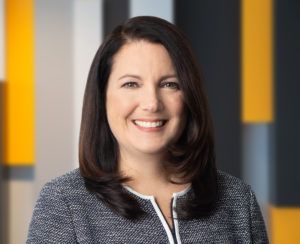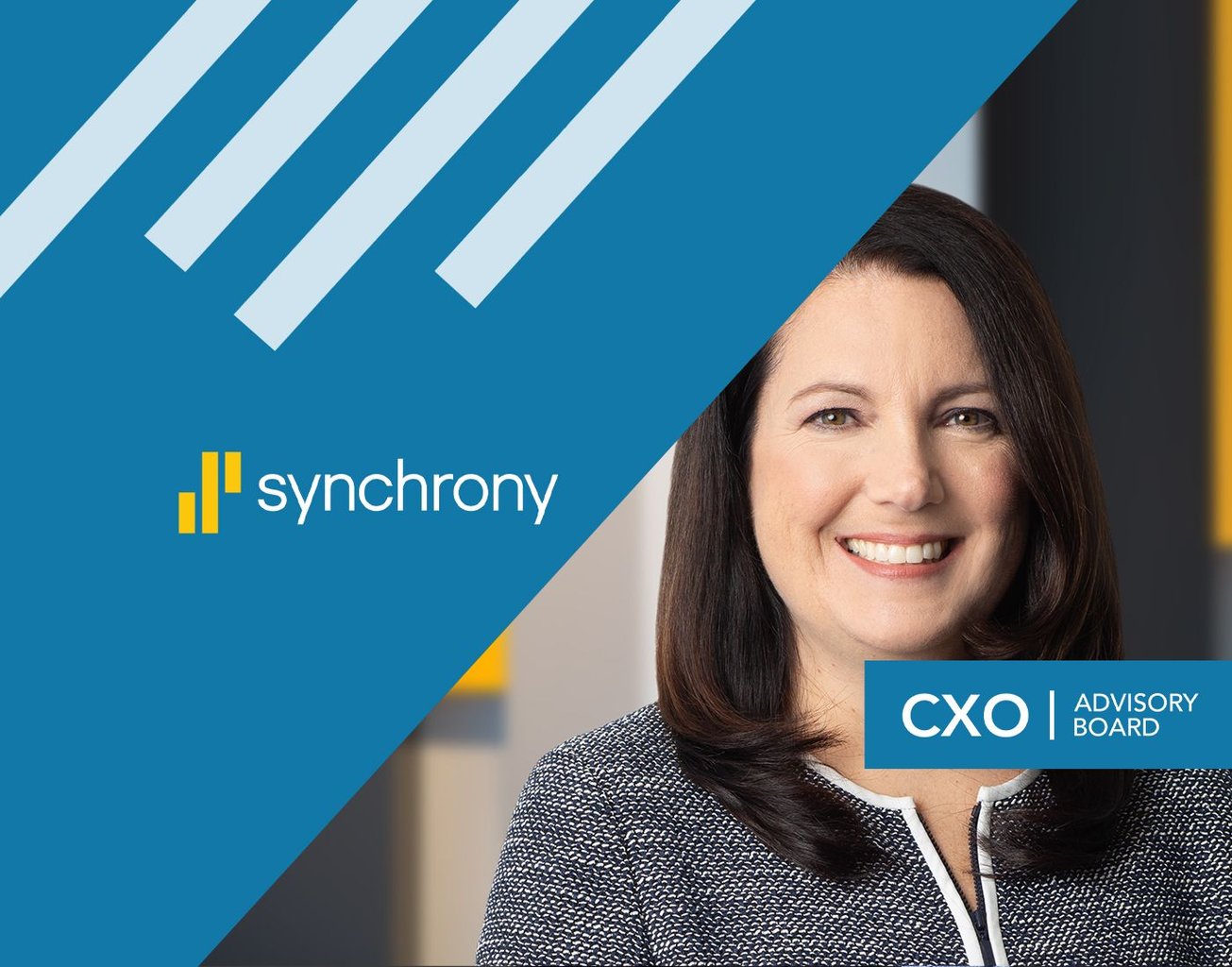
Carol Juel - Executive Vice President and Chief Information Officer at Synchrony
What is your focus at Synchrony?
As EVP and Chief Information Officer at a large consumer financial services company, my role is broad. Technology is in the DNA of our company, and I am responsible for helping set the vision and driving digital transformation with a focus on payments. At Synchrony, we work with merchants, healthcare providers, and a range of partners, from large companies to smaller “mom-and-pop” customers. Because of this depth and breadth of needs, we have to be able to build technology that will seamlessly integrate across a diverse range of industries and meet customers where they are. This requires flexibility in the architecture of our products and services and we are laser-focused on that. We believe that company-wide innovation is co-owned and the entire leadership team is responsible. I work with my colleagues from marketing to operations to credit, helping run the company and driving transformation through agile principles.
What was your journey to becoming a CIO?
I never imagined being CIO of a company like Synchrony, mainly because I didn’t know it was possible. I liked computer science growing up, but I opted out of an AP Computer Science course in high school because I was the only girl in the class. This experience led to my passion for helping to solve the gender gap in technology, being a statistic myself. (See below for more on my work with Girls Who Code).I studied Linguistics in college which is actually very relevant to computer science. After college, I joined a consulting firm, which was my first step into the world of business and technology. Once I was in that world, light bulbs went off for what was possible. As I moved up the consulting ranks, there was a gender equality gap. I then decided to transition to a role at GE Capital.What was exciting to me about GE Capital was that no matter what your role, you were a business operator and had a P&L (profit and loss). This role led to the opportunity to be in financial services during the financial crisis. I learned a ton. Coming out of the crisis, I had the opportunity to help lead one of the largest IPOs post- financial crisis. After that, I realized that driving growth at a company with technology as the differentiator is what motivates me. Being CIO of Synchrony has been a dream job! I’m a lifelong learner and I thrive in roles where I am required to adapt and respond to various challenges. As a CIO, if you don’t love learning and adapting, you’re not going to survive.
What are your main priorities right now?
A big priority over the past year for me - and for many CIOs - has been stabilizing the company during the pandemic. The pandemic was a great accelerator and digitization has changed a lot in the last year. Up until this point, digital has mostly been about adoption and creating frictionless experience. With the pandemic, health and safety became a huge priority.
For example, prior to 2020 “contactless payment” was not seen as a priority feature and now it has taken on an entirely new meaning with things like curbside pick-up, tap to pay, and direct-to-device multi-way communication. The pandemic has enabled different types of interactions in contactless commerce and it’s only accelerating. These things have become table stakes for how customers expect to engage into the future. We won’t be going back, so we continue to think a lot about how you engage in the full lifecycle of a transaction - online, in-store, customer interaction.
Fintech is going through some big disruptions; what are some of the big tech innovations you are seeing?
The changes taking place in fintech are phenomenal. A lot is being done around customer experience, ecosystem, APIs. Many fintech companies have capitalized on opportunities to solve a facet of the customer experience that may not be addressed currently by bigger players. This means they are often solving a narrow experience problem that addresses a specific pain point.
At Synchrony, we have a big focus on customer experience and we work with a lot of the smaller, up-and-coming players in the fintech space. I believe the future of fintech is all about finding ways to partner, finding the right approach to technology, and the right culture fit. When looking at fintech partners, we always ask - do we solve problems the same way and think about development the same way? We’ve seen partnerships that started small at first grow into a big opportunity, and even somewhere, we’ve made a strategic investment.
What advice would you give to a technology startup looking to work with you?
Don’t sell your product, solve a problem. I have a lot of meetings with startups where they start pitching right away. Translate how the problem you’re solving aligns with a need we have. Getting that context first can lead to a much more interactive and productive discussion. I suggest starting the conversation by interviewing the customer and asking, “What’s the problem I can help you solve?”
Tell us about your work with Girls Who Code. (Congratulations on joining the Board!)
Thank you! Girls Who Code is a program that encourages girls and young women to start coding early, which is a passion of mine. There is a big gender gap that exists in tech - a pipeline problem where not enough girls are entering into the field. We see young girls’ interest in STEM which is about 70% in middle school drop significantly - to 20% - by junior year of high school. It’s not a capability gap - it’s a confidence gap. And if you’re limiting career options by the time you’re 14 years old, that’s a huge issue.
Girls Who Code focuses on how to create opportunities to nurture girls’ interests in tech at the point in time and then support them through programming to get them to college. The programs build a sense of sisterhood in a safe, supportive environment and gives girls opportunities to learn, explore, and solve.I serve as executive sponsor of Synchrony’s summer immersion program with Girls Who Code and that’s how I got involved. My favorite time of year is now September because I get 25+ handwritten thank you notes from students and parents saying how transformative the program has been for them. I recently joined their board and am excited to help support and usher in the next chapter of the program.
What are you enjoying reading or listening to right now?
\I’m a huge reader! My kids and I made pandemic book lists and we’ve read a ton. I finally read the entire Harry Potter series, which I loved. (Side note: my son read it 3 times in the same time it took me to read it once through!) I also recommend reading the NYT bestseller Caste: The Origins of Our Discontent by Isabelle Wilkerson, an amazing read to help think about how institutional racism has been in society from the founding of this country. Very thought-provoking book.
What advice would you give women entrepreneurs?
Be tenacious. Find the people you can trust because you’ll hear “no” more than “yes” compared to your male colleagues and peers. I also believe that change is happening in leadership style and women are set up for success. If you look at some of the most well-run companies during the pandemic they have something in common - women ran them. We are going through a shift in what we value, and for women entrepreneurs, it has the potential to change the dialogue and power dynamics.We all are responsible for doing more to build the pipeline and support and keep women in the workforce. Some sobering statistics:
- 1984 was the last year that the largest number of computer science degrees were issued to women.
- The pandemic has disproportionately impacted women in the workforce, with more than 2.3 million women leaving between February 2020 and January 2021.
Let’s work together to solve this.
Check out more CXO Insights.
Learn about our CXO Advisory Board.

